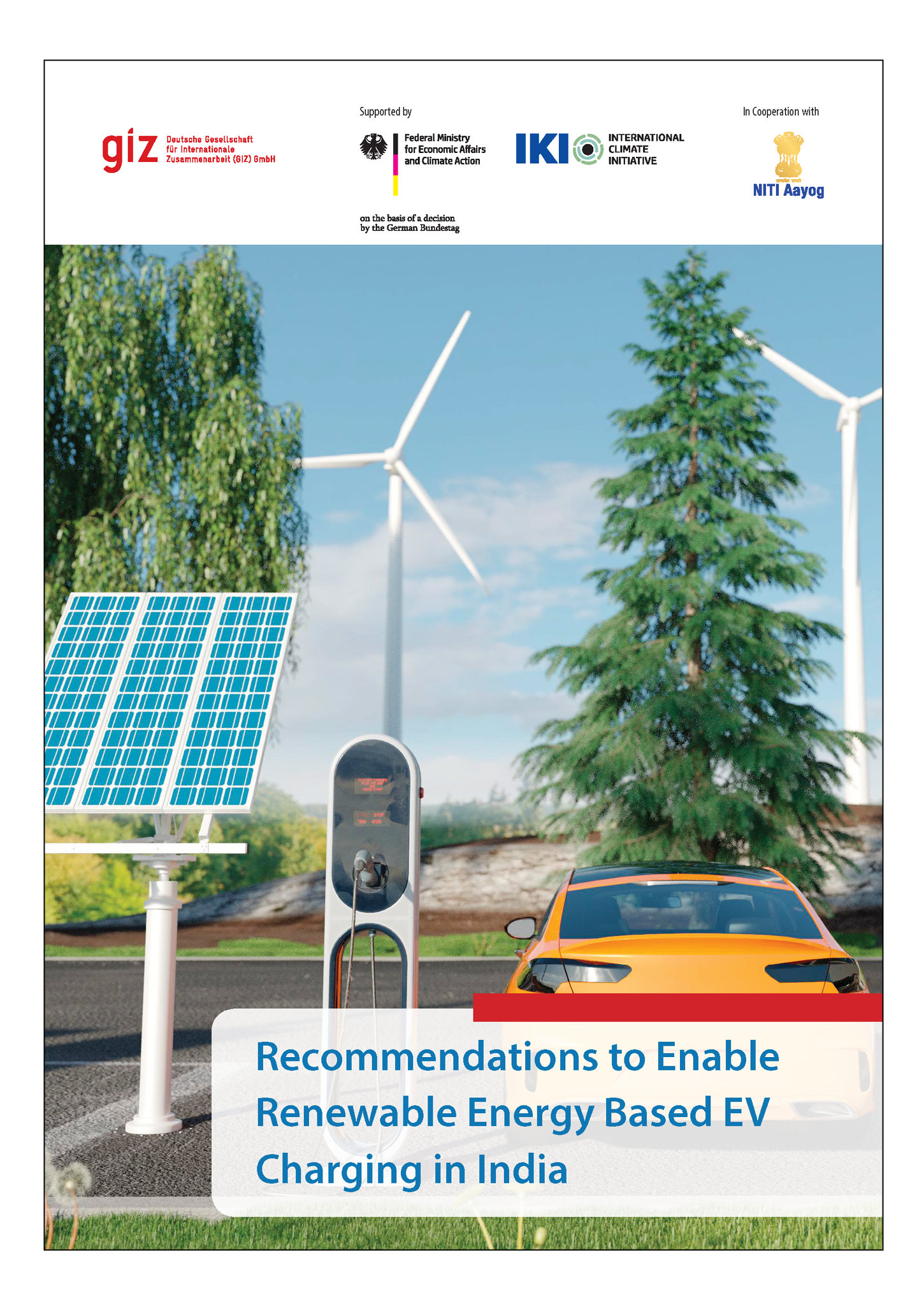REPORT RELEASE: Recommendations to Enable Renewable Energy Based EV Charging in India
On 29 March 2024, GIZ and Deloitte, in cooperation with NITI Aayog, released the report from the study “Power Market Reforms to Facilitate Renewable Energy (RE)-Based Electric Vehicle Charging in India.” The report “Recommendations to Enable Renewable Energy Based EV Charging in India” was released by Mr. Sudhendu Jyothi Sinha, Advisor, Infrastructure Connectivity vertical, NITI Aayog, Government of India and he delivered the keynote address.
Identifying the levers for decarbonizing EV charging, GIZ has deployed this study to understand the challenges and opportunities existing in the policy, regulatory, and technological landscape of in India of EV charging to complement RE power generation and efficient grid management. Keeping this in view, three cities viz. Bengaluru, Kolkata, and Panaji were identified to assess their present situation and preparedness concerning renewable (RE)—based EV charging. Deloitte and Power Research & Development Consultants (PRDC) carried out this study. The study has been carried out under the purview of GIZ’s Nationally Determined Contribution - Transport Initiative for Asia (NDC-TIA) project, in close collaboration and under the guidance of NITI Aayog.
In this event, Mr. Amegh Gopinath, Coordinator, NDC-TIA India Component, GIZ India, delivered the opening remarks and provided a brief background of the project. The report “ Recommendations to Enable Renewable Energy Based EV Charging in India” was released by Mr. Sudhendu Jyothi Sinha, Advisor, Infrastructure Connectivity vertical, NITI Aayog, Government of India and he delivered the keynote address. He emphasized the necessity of powering electric vehicles (EVs) using green energy sources as a crucial step toward achieving tangible decarbonization in the transportation sector. Additionally, he highlighted that any recommendations formulated at the nascent stage of technology should be practical and capable of being scaled up with minimal market or technological resistance. Three presentations were made to highlight the findings of the study by GIZ on RE-based EV charging, each by Mr. Akshit Tripathi, Senior Consultant, Deloitte, Dr. Chandra Sekhar Reddy Atla, Deputy General Manager, PRDC, and Mr. Chandan Dikshit, Associate Director, Deloitte. The event concluded with the summary and closing remarks delivered by Mr. Suraj Kanojia, Junior Energy Advisor, GIZ India.
This report sets the context of RE-based EV charging, its need in India, concerned stakeholders, modes of RE procurement, and locations for RE-based EV charging in different businesses. It captures all the gaps identified in the Indian RE and EV ecosystem (at the city and central levels). It covers the best practices in some nations such as the USA, Germany, Netherlands, Norway, France, Austria, Japan, and China to enable RE-based EV charging. This report's primary focus is the recommendations panned out across short--, medium-, and long-term for specific stakeholder groups. By focusing on these fundamental considerations and recommendations, India could ensure its EV revolution is green and environmentally sustainable.
Author: Suraj Kanojia
Images from GIZ India.



On 29 March 2024, GIZ and Deloitte in cooperation with NITI Aayog, released the report “Power Market Reforms to Facilitate Renewable Energy-Based Electric Vehicle Charging in India”.